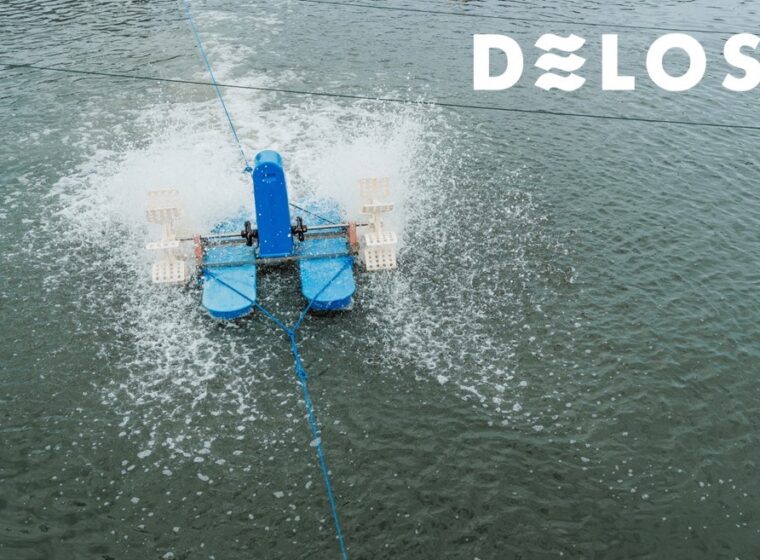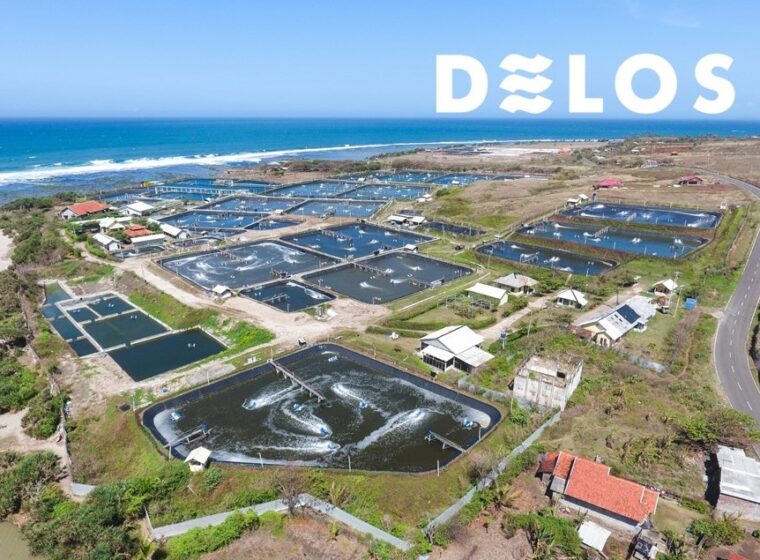
The presence of various types of plankton in shrimp ponds is quite diverse. Despite being microscopic in size, plankton plays a significant role and has a substantial influence on the shrimp pond ecosystem. Therefore, their presence must be constantly controlled.
The diversity of plankton in shrimp ponds indicates a stable and favourable pond environment. However, it’s important to remember that not all plankton have a positive impact on the pond ecosystem and shrimp growth.
This article will discuss what plankton is, the various types of plankton found in shrimp ponds and their impact on water quality, as well as which types of plankton can benefit or harm shrimp ponds.
What Is Plankton?
Plankton is a collection of small organisms that float or drift in water. They generally cannot actively move against water currents and rely on water movements to change their position.
Plankton is divided into two main groups: zooplankton (animal plankton) and phytoplankton (plant plankton). Both play important roles in the aquatic ecosystem of shrimp ponds, including serving as a natural food source for shrimp.
Also Read: The Use of Dolomite Lime in Shrimp Farming: Benefits and Implementation
Types of Plankton in Shrimp Ponds and Their Effects on Water
a. Phytoplankton
Phytoplankton is a group of plankton consisting of microalgae and cyanobacteria. They play a role in oxygen production through photosynthesis and provide a food source for zooplankton.
However, uncontrolled phytoplankton growth can lead to issues in shrimp ponds. Excessive phytoplankton growth can cause a decrease in dissolved oxygen in the water (hypoxia) and affect water quality. This can be detrimental to shrimp as they require sufficiently oxygenated water to breathe.
b. Zooplankton
Zooplankton consists of various microscopic animals such as copepods, rotifers, and bivalve larvae. They serve as a natural shrimp feed source in shrimp ponds.
Adequate zooplankton populations in shrimp ponds can enhance shrimp growth and health. However, a population of zooplankton that is too low can lead to competition for food and slow shrimp growth.
Also Read: The Influence of Ion Composition on the Growth and Survival of Vannamei Shrimp
Beneficial Plankton Types for Shrimp Ponds
Some types of plankton that benefit shrimp ponds include:
a. Green Algae (Chlorophyta)
Chlorophyta, also known as green algae, are commonly found in shrimp ponds because they can thrive in various environmental conditions. Chlorophyta produce a light green to green colour in the water.
As the name suggests, Chlorophyta produces chlorophyll, which is beneficial for photosynthesis and provides additional oxygen in the pond, serving as a natural food source for shrimp.
b. Diatoms
Diatoms, also known as Bacilliariophyceae, are a crucial phytoplankton type that serves as a significant food source for shrimp. They contain nutrients such as omega-3 fatty acids that support the healthy growth of shrimp.
Harmful Plankton Types for Shrimp Ponds
Some types of plankton that can harm shrimp ponds include:
a. Cyanophyta
Cyanophyta, or blue-green algae, are plankton that can turn water green or even blackish. They can produce toxins that can poison shrimp in the pond and lead to toxic blooms, which can be highly detrimental to aquaculture.
b. Dinoflagellata
Toxic dinoflagellates can produce toxins from their flagella, which can be harmful and even fatal to shrimp. They can also disrupt water quality by releasing waste that causes water discolouration. Therefore, the presence of dinoflagellates in the pond should not exceed 5%.
Also Read: The Importance of Minerals in Vannamei Shrimp Farming
Shrimp Farming Is More Profitable with DELOS!
The diverse types of plankton indicate the condition of shrimp ponds. However, it’s essential for shrimp farmers to manage the presence of plankton to maintain a favorable environment for aquaculture. By managing plankton wisely, shrimp ponds can remain productive, maintain optimal water quality, preserve shrimp health, and prevent potential losses.
For those looking to start vannamei shrimp farming, DELOS can be your ideal aquaculture partner. DELOS is a science, technology, and operational management-based aqua-tech company that can help you explore new opportunities in aquaculture.
DELOS is also supported by the AquaHero application, making it easy for farm owners and personnel to monitor their shrimp ponds daily.
Contact the DELOS team at contact@delosaqua.com or visit our website at www.delosaqua.com to learn more about our services. Begin your vannamei shrimp farming journey with DELOS!




